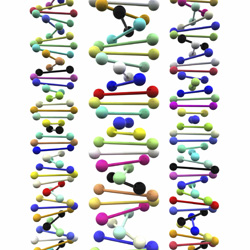Discovering variation through common procedures
The 'European special populations research network: quantifying and harnessing genetic variation for gene discovery' (Eurospan) project took an all-encompassing approach to quantifying genetic variation in genes known to play a role in health and disease. Partners came together to pool European expertise and resources for work on essential elements of genomic research. Originally planning to achieve the coordinated measure and identical study procedure of 50 new phenotypes to facilitate joint analysis, Eurospan efforts far outperformed expectations. One of the partners established a new single-nucleotide polymorphism (SNP) genotyping facility for related needs, and in the project's second year, lipidomics analyses were completed. Several hundred highly specific phenotypes were delivered, shared and standardised among all partners for joint analysis of data. The latter were uploaded onto a joint server and two partners developed new software for these analyses. Data output was subjected to a quality control procedure, and software tools developed by Eurospan partners analysed the complex family-based genome-wide association study (GWAS) data set. More than 300 phenotypes or quantitative traits and 1 268 million SNP genotypes make up the datasets — significantly more in number than initially aimed for. Approximately 100 scientific papers were published and numerous presentations accepted at international meetings for disseminating early findings. Team members initiated or took part in collaborations on various publications with many European consortia to maximise study power across the region. Project studies achieved Eurospan's original objectives of discovering common variants influencing disease traits. This was achievable through the large sample sizes and coordination with international research groups. Work continued beyond the duration of the project, thus expanding final scientific achievements.







